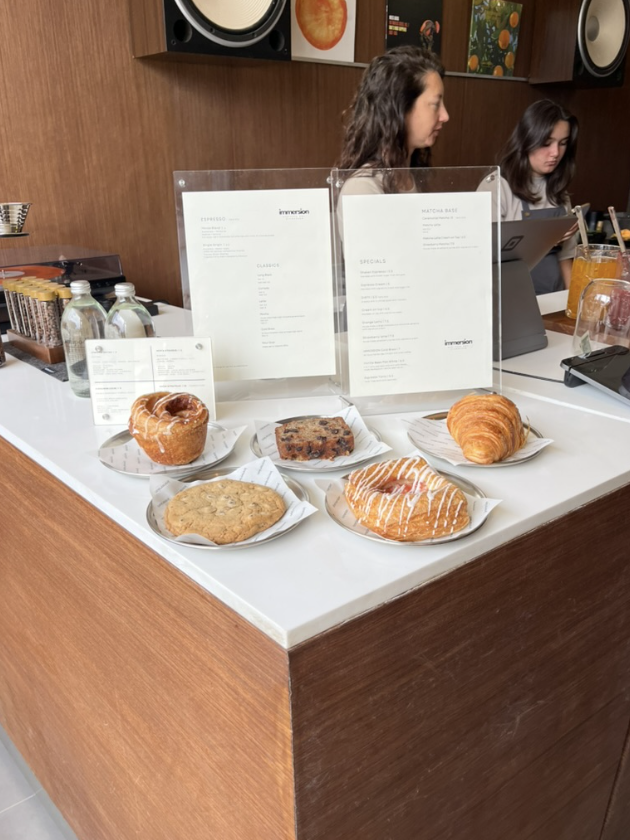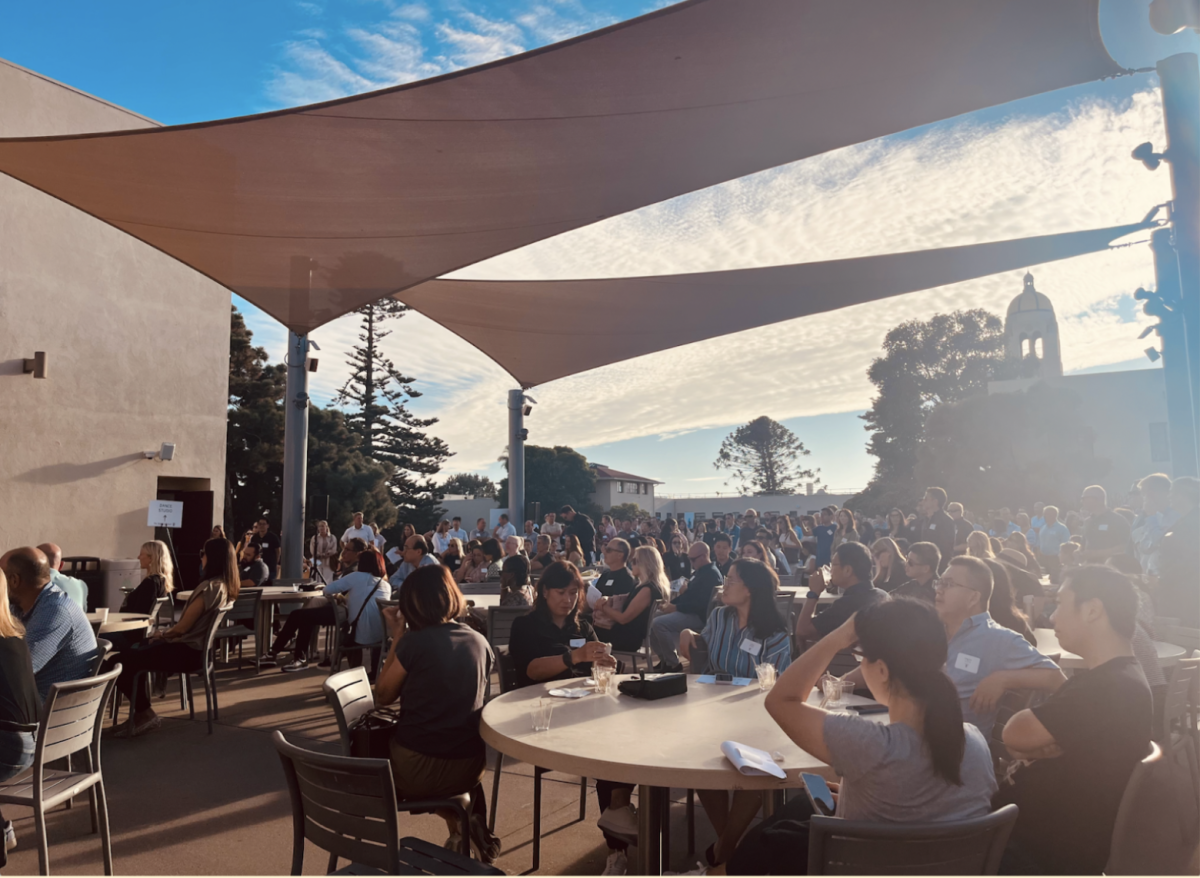“Ugh, there’s no food in the house!” Every teenager has definitely groaned those words aloud, standing in front of a fully stocked fridge. What to do? Most would skip the fresh produce and check the freezer for a frozen pizza. If your parents aren’t into ready-to-eat meals, you would probably take out your phone, open a delivery app, and order yourself a twice-the-price meal.
Generation Z can code, drive, ace their studies — but can they survive in the kitchen? Not necessarily. With the emergence of popular food delivery apps, frozen meals, and an increasing feeling that there’s never enough time in one day, Gen Z is falling behind in their cooking game.
Right now, it seems the younger you are, the worse you are at cooking. According to the New York Post, the FindingTheOne app — which surveyed cooking skills — found that “a whopping 42% of those aged 18 to 28 said they could not whip up a basic stir fry, while 27% couldn’t figure out a simple soup.” Even omelets, which technically only need one ingredient, “completely eluded a whopping 61%” of Gen Z-ers. While complex, technical dishes may be expected to stump young adults, even basic dishes are now deemed too difficult to execute.
Jackson Weisser (‘26) admitted that he only gets involved in the kitchen for “special events.” According to Jackson, his family orders takeout around four or five times a week. Calling from his summer program, he even added that he was DoorDashing food to his dormitory during the interview, though he typically picks up food from restaurants himself instead of using delivery apps.
“I just really don’t have the time [to cook],” Jackson explained. He revealed that he has virtually no free periods at school and a busy extracurricular schedule. “Also, [people in] my family aren’t big cooks, so I never really took on the habit of, ‘Oh, I should be cooking something right now to feed myself.’”
Many young adults would agree with Jackson that they don’t have time to cook. A survey in an article published by a Chicago family-run pizza business, Home Run Inn Pizza, asked 1,000 Gen Z adults and found that 75% cite time as the reason why they don’t cook more. According to an article from the Living Section of the New York Times archives, “cooking has evolved into an optional activity, like skiing or playing chess” in the last decade. “Many young adults never learned how to cook, or they simply don’t bother, because there are so many other choices, like fast food, takeout, or frozen dishes that can be microwaved.”

Indeed, food delivery has become a popular option for those who have access to it. According to Statista, the online food delivery market is expected to reach $1.39 trillion in revenue in 2025. By 2030, they expect to have 2.5 billion users in the meal delivery market. People are turning towards ordering their food instead of cooking it themselves. DoorDash conducted a survey with 1,500 participants — “33% said that they were ordering more delivery in 2024 compared to 2023, and 49% were placing repeat orders at least once a week.”
On the flip side of the coin, Tyler Chang (‘26) is an avid baker and cook who runs a baking business, Snowy Bakes. “In general, I think if you rely on outside sources for food, you’re not gonna cook as much or you’re not gonna be interested in cooking,” Tyler said. “[My family doesn’t] really DoorDash anything at all. I don’t even have the app downloaded,” he added.
While Jackson’s family doesn’t cook, Tyler’s family is the opposite. “My parents and I cook all the time so I think that’s kind of why I cook, but also because I’m interested in baking,” Tyler said. Habits attained in the household may contribute to why some Gen Z-ers choose to cook and others choose takeout. According to the FindingTheOne survey in the New York Post, 85% of Gen X adults (ages 44 to 59) “felt comfortable in the kitchen — perhaps because a staggering 72% of them said they learned the proper skills from their parents.”
Tyler also agreed with Jackson that many Gen-Zers nowadays just don’t have the time to cook. “Especially for people our age, when we’re just so busy all the time,” he said. “Or it could be an overreliance on outside sources for food so they don’t feel the need to cook.” However, he proposed a new reason why others around him are timid to enter the kitchen.
Tyler explained that many people he knew were curious to try cooking, but didn’t start because they lacked the “confidence” to do so. “They’re like, ‘Oh, I messed up. I’ve burned butter once, so now I don’t wanna even go into the kitchen at all,’” he remarked, chuckling. With microwavable and restaurant-made meals, there’s almost zero room for error.

Convenient frozen meals and ordering takeout can save people a lot of time, which they can then allocate accordingly, but this may not always be the healthiest option. Jackson said that while he has now found healthy, convenient alternatives like pre-made salads, “there was a time when I was eating so much fast food that it was just not okay.” He still doesn’t feel pressured to learn how to cook, despite acknowledging the skill’s importance. “I feel like you can survive off cup noodles for a little bit,” he said. “But once you get sick of that, I feel like there’ll be a push to do it anyway.”
Financially speaking, getting food is growing increasingly tricky. Ordering in all the time is not a sustainable option for many young adults, but even buying fresh produce can be expensive nowadays. “For the first time in a long time, we’re starting to see people concerned with the cost of food,” Director of Product Communications for Pillsbury, Marlene Johnson, said to the New York Times. Regardless of what options people pick, food is becoming expensive either way.
For example, Bishop’s students DoorDash Starbucks drinks to campus for a marked-up price. For students whose families aren’t as financially privileged, ordering everything online can really add up. According to the New York Times, “The markups on the food deliveries were 7 percent to 91 percent more than what you would pay if you bought the meal directly from the restaurant.” It is nice to have your cravings delivered right to campus, especially if money isn’t a problem — but it’s important to keep budgeting in mind for developing future habits.
Keeping up with school and extracurricular activities can feel overwhelming, so much so that many don’t have the time to cook. And in our evolving world, cooking — still a valuable life skill — has taken its place on the sidelines of Gen Z priorities, while meal delivery has taken the lead. Many still find enjoyment in cooking, but most no longer view it as a necessity. Perhaps this trend is just a reflection of our society’s movement towards prioritizing convenience. Regardless, food is meant for nourishment, so choose wisely — whether that’s ordering a meal to your door or whipping it up in your kitchen!







